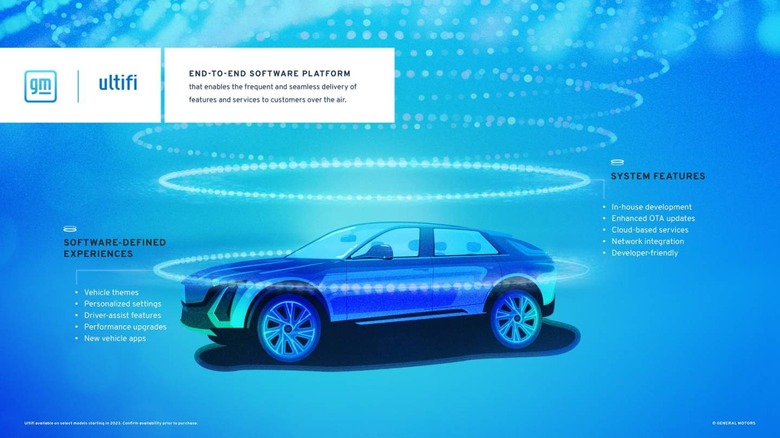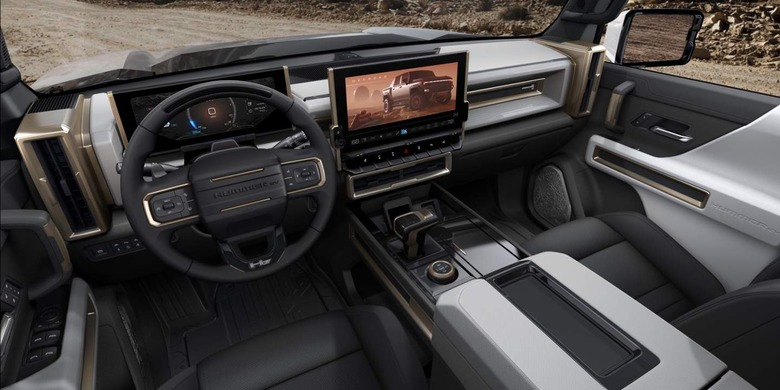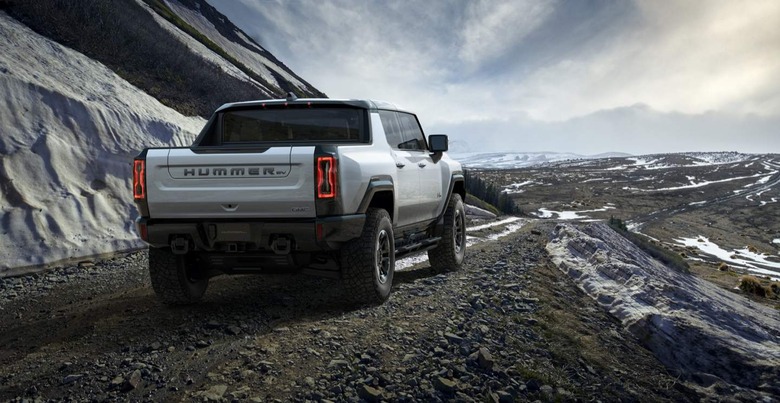GM Ultifi Is Automaker's Software Fix For Cars That Get Better Over Time
General Motors has revealed its plans for software-upgradable vehicles, with a new platform – GM Ultifi – promising cars and SUVs that improve over time, and a new potential source of revenue. Built atop GM's Vehicle Intelligence Platform (VIP), the latest iteration of the company's electric architecture, Ultifi will help further distinguish software abilities from hardware in future models.
Not that long ago, the car you picked up at a dealership was the same car you traded in years later. Now, with the rise of over-the-air updates – a shift driven in no small part by Tesla, though since picked up by other automakers – that's no longer the case – nor considered acceptable by vehicle shoppers.
That transition, though, has demanded a revamped way of thinking about the way vehicle platforms are developed. Rather than siloed electrical systems linked by increasingly complex CAN wiring, designed to be replaced on a generation by generation basis rather than upgraded, newer models typically support high-speed networking and over-the-air (OTA) firmware updates. That's key to GM's Ultifi announcement today.

"VIP-enabled vehicles today provide over-the-air capability, plenty of data bandwidth, robust cybersecurity and lightning fast processing power," the automaker says. "On top of this foundation, GM engineers will separate key software into a new centralized layer that acts as a powerful hub for vehicle systems. The Ultifi platform will then enable accelerated development and deployment of software and applications over the air to millions of customers, without affecting basic hardware controls."
For owners, it'll mean a more smartphone-like experience, GM promises. Regular updates will be pushed out, along with new apps, potentially cutting down on the amount of time vehicles have to spend at dealerships being serviced. "Customers can buy the car and just let the car be as it is, or with the agreement we can upgrade the car over time," Scott Miller, VP of Software Defined Vehicle at GM, explains. "Today, cars are enabled by software. With Ultifi, they're going to be defined by it."
It'll also unlock post-delivery purchases of new features, potentially. For example, GM will be able to use Ultifi to offer options which the vehicle wasn't specified with on day one, such as navigation, new teen driver features, and more. The company is looking at using "authenticated accounts," which could potentially share a single purchase or subscription across multiple GM vehicles.

If you wanted to try Super Cruise for a road trip, for example, a Ultifi-enabled vehicle could offer temporary access as well as a one-time purchase – assuming, that is, the car has the right hardware fitted. Ultifi will use a consistent software platform, but automatically configure to the capabilities of the vehicle it's running on. It'll be able to change some performance characteristics – tweaking, say, sport calibrations or even adjusting drive modes based on real-time weather conditions – though nothing that might change core certification parameters.
Down the line, as new features are developed, they'll also be able to upgrade existing vehicles – assuming there's hardware compatibility too. GM's examples of that are potentially using in-cabin cameras for facial recognition to start the car, customizing teen driver settings, and linking vehicles with a smart home system. With a persistent link to the cloud, GM will be able to deliver convenience tweaks like automatically shutting the sunroof if it knows it's about to rain on your parked SUV, or using the cabin cameras to spot when you have kids onboard and so automatically turn on the child locks.
"Similarly, the cloud connectivity could potentially extend to V2X or vehicle-to-everything applications to help advance GM's goal of zero crashes and zero congestion," GM suggests. "Through communication with other connected devices and infrastructure, drivers could be alerted to hazards or changing road conditions and be able to effectively time traffic signals."

Ultifi is based on Linux, and GM is hoping that third-party developers will be intrigued enough to come up with apps and services that it'll be able to offer to drivers too. However, they'll need to be approved by the automaker first, for safety reasons, and the exact details – like how the GM app store will work, and what sort of revenue split developers could expect – are still to be finalized.
Not every vehicle is VIP-based, of course, though the current list includes the latest-generation Cadillac Escalade, the newest Chevrolet Corvette, and upcoming models like the 2022 GMC Sierra, the Cadillac LYRIQ, and the GMC Hummer EV. Unfortunately, just because your current car may be built on VIP, that doesn't mean you'll get Ultifi when GM rolls that out from 2023. "Right now we're looking at new vehicles with our latest high-performance computer systems on them," Miller says, "so it's going to be '23 and beyond, really."
At that point, it'll come into effect on both internal combustion and EV models. Unlike VIP, GM is hoping to position Ultifi as a consumer-facing brand, too. "There'll be regular versions throughout the year," Miller explains, "certainly bug-fixes and improvements, but also enhancements." As for data collection, GM will be relying on anonymization and randomization to tamp down on privacy concerns, though Ultifi's functionality will be opt-in. This doesn't change GM's plans to embrace Android Automotive OS, either: Ultifi will be compatible with multiple infotainment platforms.
